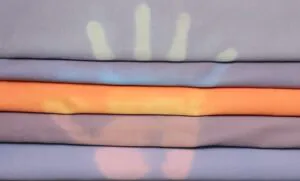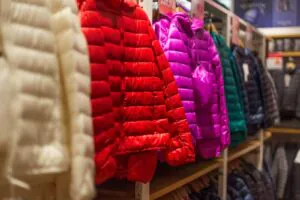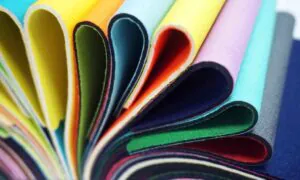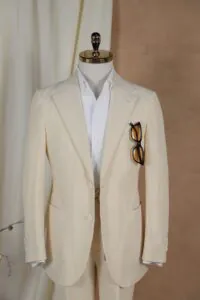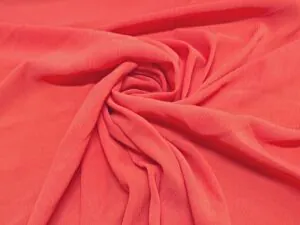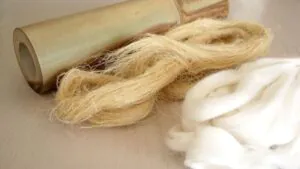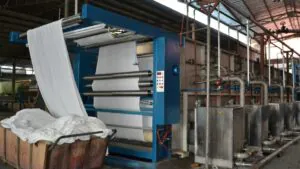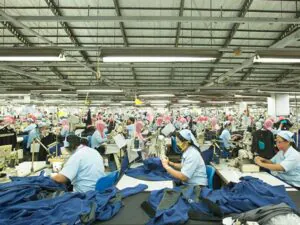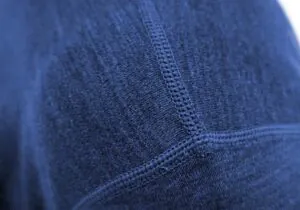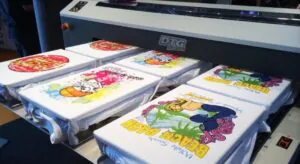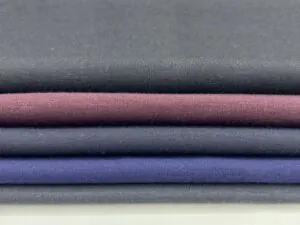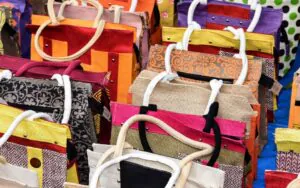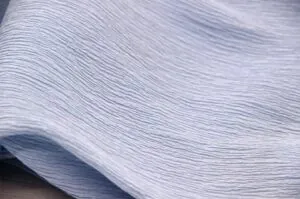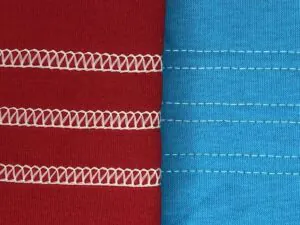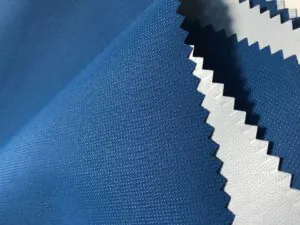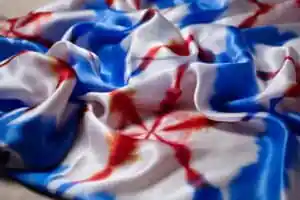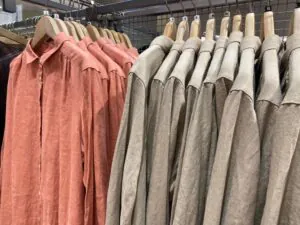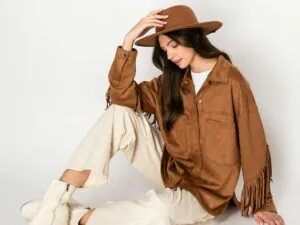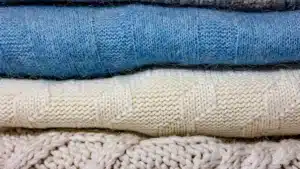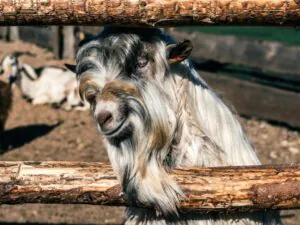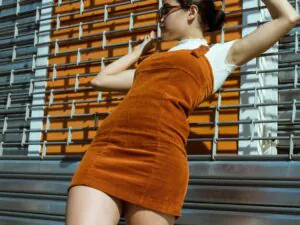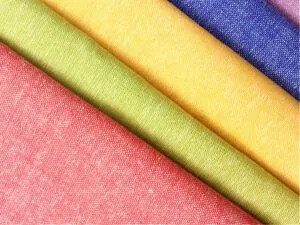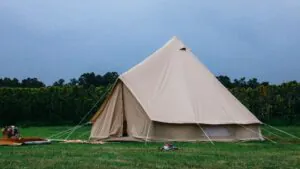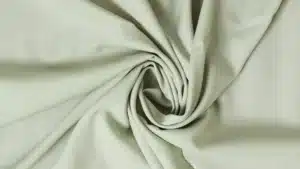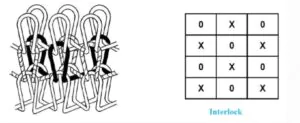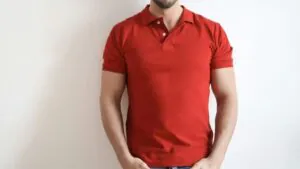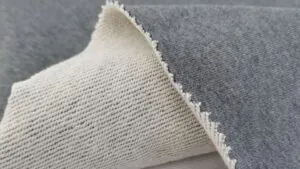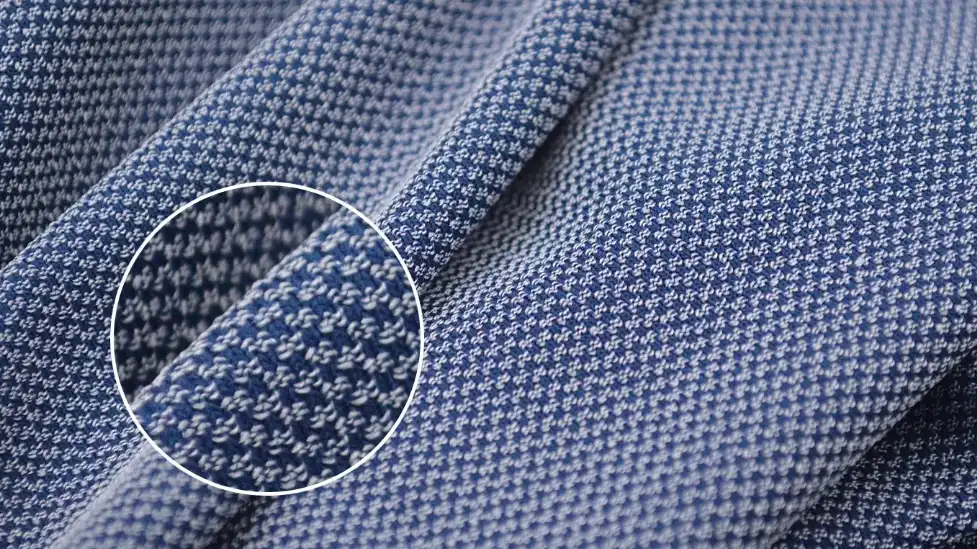
The weaving processes include woven (also called loom weaving), knitting, braiding, and non-woven, with knitting further divided into warp knitting and weft knitting.
Warp knitting is a textile process in the knitting domain. It involves feeding one or several sets of parallel yarns into all the working needles of the machine in the warp (longitudinal) direction, forming loops simultaneously to create knitted fabric. This method is called warp knitting, and the resulting fabric is known as warp-knitted fabric.
Tricot fabric is a useful material made with warp knitting. This gives it a smooth feel and special stretchiness. It is stretchy, strong, and doesn’t wrinkle easily. These features make it great for many uses.
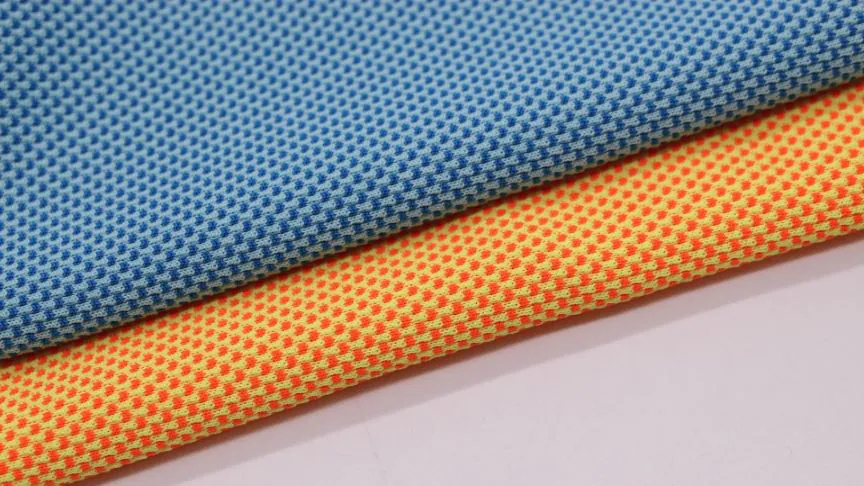
Key Takeaways
Tricot fabric stretches and bends, great for comfy clothes like sportswear.
It is tough and doesn’t wrinkle, so it stays neat and lasts long, perfect for active people.
Tricot is light and airy, keeping you cool, ideal for summer clothes.
What Is Tricot Fabric and Its Unique Characteristics
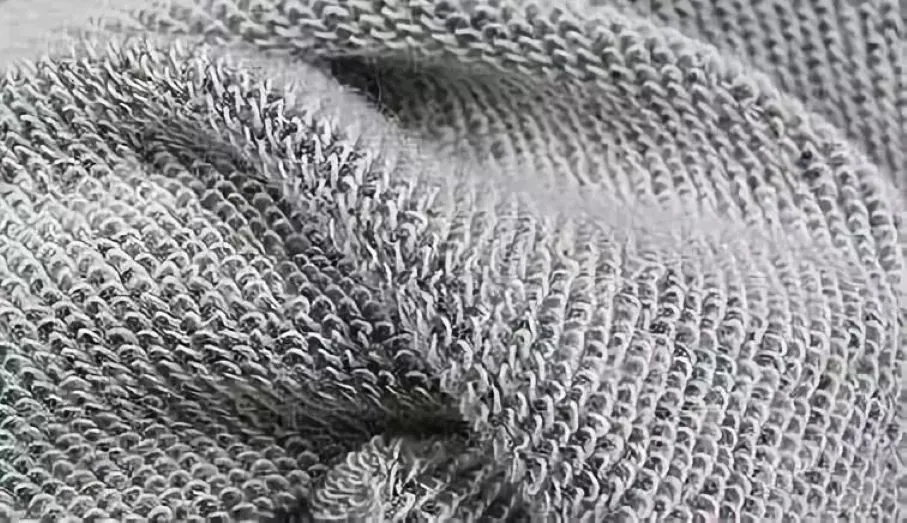
Stretchy and Flexible
Tricot fabric is known for being very stretchy. It can stretch in many directions, making it great for comfy clothes. Tricot is often used in casual wear, sportswear, and underwear. Its four-way stretch lets it move with your body. This makes it perfect for physical activities or everyday outfits.
Smooth Feel and Zigzag Design
Tricot fabric feels smooth and soft to the touch. This comes from its special zigzag weave made by warp knitting. The front side is sleek, while the back has a slight texture. This makes it both comfy and stylish. Whether for activewear or lingerie, the smooth surface adds to its appeal.
Strong and Wrinkle-Free
Tricot fabric is strong and lasts a long time. The warp knitting process makes it tough, even with regular use. It also doesn’t wrinkle easily, so it stays smooth without ironing. This makes it a good choice for busy people. From sportswear to swimwear, tricot stays reliable and looks good.
Light and Breathable
Tricot fabric is light and lets air pass through. This keeps you cool and dry during activities. It’s great for summer clothes and activewear. Even though it’s lightweight, it’s still strong. This balance makes it both comfy and durable.
Feature | Details |
|---|---|
Stretchiness | Stretches in all directions for easy movement. |
Strength | Warp knitting makes it strong and long-lasting. |
No Wrinkles | Stays smooth and needs little care. |
Uses | Found in lingerie, sportswear, swimwear, and activewear. |
How Tricot Fabric Is Made
Overview of the Warp Knitting Process
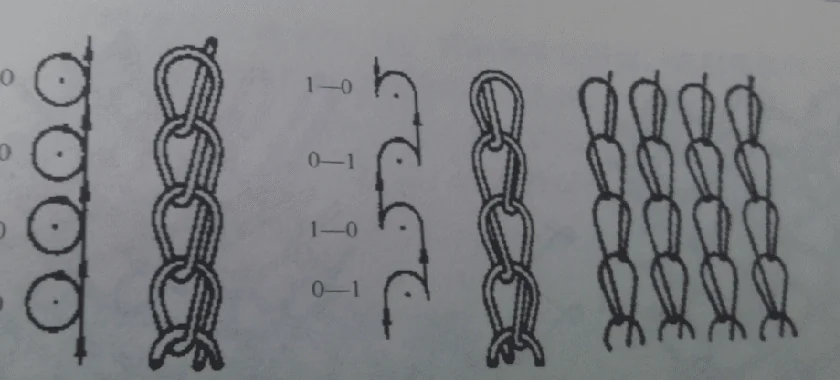
Tricot fabric is made using warp knitting. This process links yarns in a zigzag way. Flatbed knitting machines are used to make it. These machines work fast and create long loops. The loops make one side smooth and the other side textured. Warp knitting makes the fabric strong and wrinkle-free. This is why tricot is great for swimwear, activewear, and linings.
Aspect | Description |
|---|---|
Construction | Made on flatbed machines for strength and no wrinkles. |
Characteristics | Has smooth front and textured back from lengthwise loops. |
Machine Speed | Works at 3,500 courses per minute for fast production. |
Materials Used in Tricot Knit Fabric
Tricot fabric is usually made from synthetic fibers. Nylon, polyester, and spandex are common choices. A mix of nylon and spandex is popular for its stretch and comfort. These materials help the fabric stay flexible and keep its shape. Sometimes cotton or silk is added, but synthetic blends are more common because they work better.
Fiber Type | Characteristics | Reason for Use |
|---|---|---|
Synthetic | Nylon, polyester, spandex | Adds stretch, strength, and flexibility. |
Blends | Nylon with spandex | Makes fabric stretchy and comfy. |
Key Features of Tricot Manufacturing
Tricot manufacturing is fast and flexible. Machines can make fabrics as wide as 170 inches. Special needles, like bearded and compound ones, are used. These needles make the fabric even and precise. Tricot fabric is used for many things, like linings, lingerie, and outerwear.
Feature | Tricot | Other Methods |
|---|---|---|
Needle Type | Bearded and compound needles | Latch needles |
Fabric Width | Limited to 100 inches |
Common Uses for Tricot Fabric
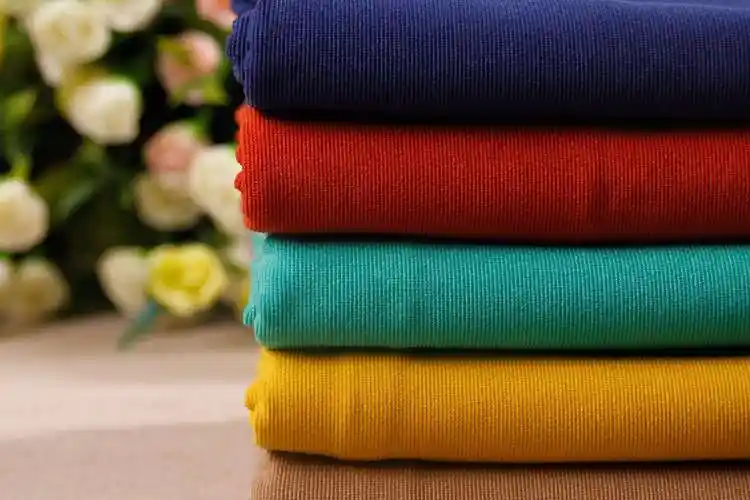
Tricot fabric is useful for many things. Its stretch, strength, and smooth feel make it popular in different areas. Below are some common ways tricot is used.
Clothes and Sportswear
Tricot is great for making clothes, especially sportswear. It stretches and breathes well, so it’s perfect for leggings, sports bras, and jerseys. Swimwear often uses tricot because it dries fast and feels smooth. Dance outfits and costumes use it for its flexibility. Outerwear includes tricot for extra strength. Lightweight accessories like gloves, hats, and scarves also use tricot for comfort.
Key Points | Details |
|---|---|
Popular Choice | People like light, breathable fabrics for activewear. |
Athleisure Trend | Tricot works for gym clothes and casual wear. |
Performance Benefits | Stretch and airflow improve comfort in sportswear. |
Home Items
Tricot is also used in home items. Its smooth look and strong build make it great for bed sheets, curtains, and furniture covers. It doesn’t wrinkle much and is light, so it’s easy to use at home. Tricot adds style to your home while being simple to care for.
Industrial and Special Uses
Tricot is important in industries beyond fashion. Car makers use it for seat covers and roof liners because it’s light and tough. Hospitals use tricot for surgical gowns and tight-fitting medical clothes. It’s also used in technical fabrics for strong and reliable materials in tough jobs.
Use Type | Details |
|---|---|
Fashion Fabrics | Used in clothes and fashion for many styles. |
Home Fabrics | Found in curtains, furniture, and bedding. |
Technical Fabrics | Needed for tough jobs that require strength. |
Car Fabrics | Used in car seats and interiors for comfort and safety. |
Tricot is a flexible and useful fabric for many needs. Whether for comfy clothes or strong industrial uses, tricot works well and lasts long.
Pros and Cons of Tricot Fabric
Advantages of Tricot
Tricot has many good points that make it widely used.
Stretch and Flexibility: Tricot stretches in all directions. This makes it great for sportswear and activewear. Its stretchiness allows easy movement and comfort.
Durability: Tricot is strong and lasts a long time. It doesn’t wear out quickly, even with regular use. This makes it good for clothes and industrial uses.
Wrinkle Resistance: Tricot stays smooth without ironing. It doesn’t wrinkle easily, so it looks neat with little effort.
Lightweight and Breathable: Tricot is light and lets air flow through. This makes it ideal for summer clothes and workout gear.
Versatility: Tricot works for many things, like lingerie and car seats. Its smooth feel and strength make it useful for fashion and practical items.
Tip: Choose tricot if you want a fabric that’s comfy, strong, and stylish.
Disadvantages of Tricot
Tricot has some downsides to think about too.
Synthetic Feel: Tricot is often made from materials like nylon or polyester. Some people may not like how these feel compared to natural fabrics.
Limited Warmth: Tricot is light and airy, so it doesn’t keep you warm. It’s not the best for cold-weather outfits.
Special Care: Tricot needs gentle care to stay in good shape. Hot water or strong detergents can harm the fabric.
Cost: High-quality tricot can be pricey. This might not work for everyone, especially for big projects.
Note: Knowing these drawbacks can help you decide if tricot fits your needs.
Tricot fabric is known for being smooth, stretchy, and strong. It’s used in clothing, home items, and industrial products. Its many uses make it a dependable option for different needs. From light workout clothes to tough car seat covers, tricot offers both usefulness and durability.
FAQ
What makes tricot fabric special?
Tricot fabric is unique because of its warp-knit design. It feels smooth and stretches in all directions. These traits make it strong, wrinkle-free, and useful for many things.
How should you take care of tricot fabric?
Wash tricot gently in cold water with mild soap. Don’t use hot water or strong cleaners. Let it air-dry to keep its stretch and shape.
Is tricot fabric good for winter clothes?
Tricot is light and airy, so it’s not warm enough for winter. It’s better for summer clothes or as a layer under warmer outfits.

